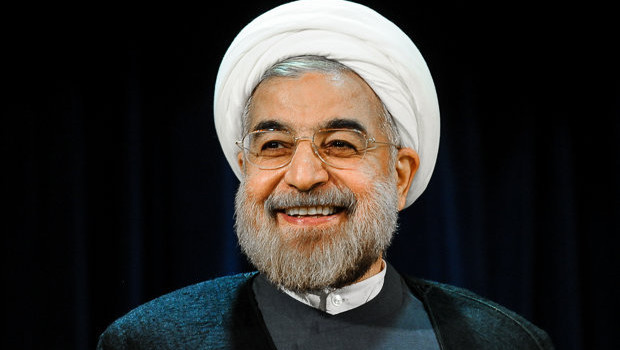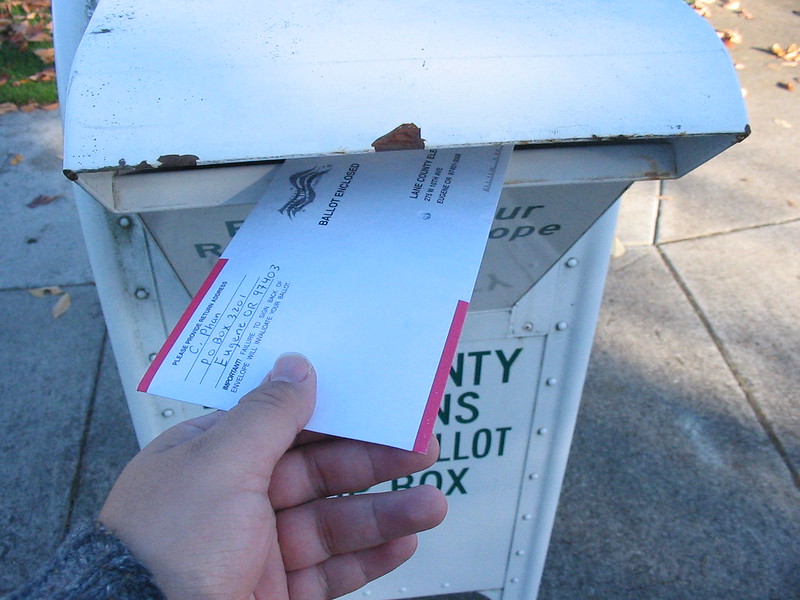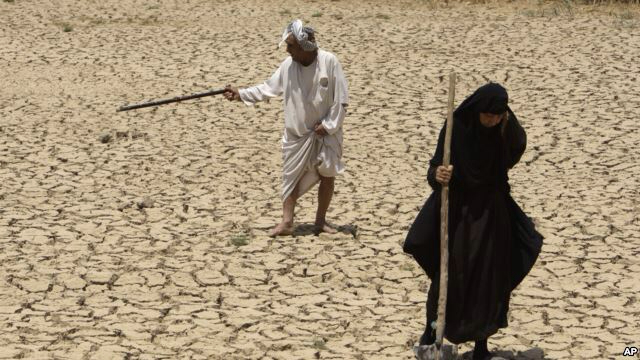Upon assuming office in 2013, President Rouhani announced with confidence that his government possessed the political will to “constructively engage” with the West.
Rouhani began by nominating Mohammad Javad Zarif, United Nations veteran and familiar face in Washington as his Minister of Foreign Affairs, and continued by transferring administration of the nuclear dossier from Iran’s National Security Council to his own cabinet.
Some Western governments responded hesitantly and awaited further indications of changes to Iranian policy, while others, somehow ignorant of Rouhani’s populist electoral backing, pointed to a draconian sanctions regime as the primary proponent of bringing the Iranians “back to the negotiating table.”
Israeli Prime Minister Benjamin Netanyahu was quick to refer to Hassan Rouhani as “a wolf in sheep’s clothing,” who would mask Ahmadinejad-esque policies in a “charm offensive.” Yet in statements following a historic phone call between the two leaders in late September, both Rouhani and Obama expressed a desire to end to the ongoing crisis and begin a new chapter of relations.
In subsequent talks in the months leading up to the November 24 Joint Plan of Action (JPA), officials described the talks as “substantive,” “candid” and “forward-looking.” During a weekend of marathon negotiations in early November, American and Iranian officials often engaged in intensive bilateral discussions, helping normalize a three and a half decade long taboo among government representatives.
The Rouhani administration endeavours to “prudently manage its relations with the United States by containing existing disagreements and preventing further tensions from emerging unnecessarily.”
Following the signing of the JPA and shortly after the enactment of the accord on January 20, campaigns by leading lobby groups aiming to apply further sanctions on Iran ended in failure, when AIPAC (American Israel Public Affairs Committee) abandoned support for a sanctions bill in early February.
After several Democrats withdrew support for the motion, an AIPAC statement said, “that there should not be a vote at this time on the measure.”
The latest report released by the International Atomic Energy Agency (IAEA) has confirmed Iran has been in compliance with the outlines agreed upon in November’s Joint Plan of Action. As part of the agreement, Iran has diluted most of its highly-enriched uranium, reducing its stockpile of nearly 400 kg by half.
Since then, two rounds of negotiations between top-level officials have taken place in Vienna and a third round is scheduled for the first week of May.
Iran’s foreign minister, speaking to Iranian media last week, said that through two rounds of talks in Vienna, officials had covered approximately sixty percent of the agenda, and Al Monitor reported that both sides hope to begin to draft the text of a comprehensive deal next month.
Recent Obstacles
At the outset of Russia’s annexation of Crimea, Russian officials hinted that a disproportionate response by the West to events in Ukraine could irritate talks targeted at reaching a comprehensive nuclear deal with the Iranians.
There is little evidence that Russian commitments to its various international obligations, such as non-proliferation has wavered, and President Putin has called for continued cooperation on security efforts with Western partners. When asked to comment, American UN Ambassador Susan Rice said, “We haven’t seen any evidence to the contrary.”
Unity within the P5+1 has long been necessary to projecting a strong negotiating posture vis-a-vis the Iranians, and previous divisions within the group have proven detrimental to talks.
When considering reactionary measures towards the Kremlin, many European countries share an interest in securing energy imports from the Russian Federation. Not only does Russian gas accounts for nearly a quarter of European imports, half of which pass through Ukraine, the energy giant is, as of 2012, the sole supplier of natural gas to at least four eastern European countries.
Iranian natural gas reserves are second only to Russia’s, and government officials, with growing confidence in a potential nuclear agreement, are in careful pursuit of international partners in the event sanctions are eased. Iran could be a “reliable, secure and long-term” supplier of natural gas to Europe, Industry Minister Mohammad Reza Nematzadeh said two weeks ago. “We don’t want to compete with Russia. But we know that Europe’s demand for gas is increasing and would like a share in this,” he continued.
More recently, American and Iranian governments have allowed the nomination of Hamid Aboutalebi as Iran’s representative at the United Nations in New York escalate into a political crisis unworthy of the recognition.
 Citing his occasional role as an interpreter during the 1979 hostage crisis that suspended US-Iran relations, the United States identified Aboutalebi as a threat to national security
Citing his occasional role as an interpreter during the 1979 hostage crisis that suspended US-Iran relations, the United States identified Aboutalebi as a threat to national security
There is no evidence that Aboutalebi, who was brought in as an English translator for revolutionary students who had stormed the U.S embassy for its role in the 1953 coup d’etat and its subsequent quarter-century long support for the Pahlavi dynasty, was aligned or affiliated with student organizers who first entered the embassy. The BBC spoke to an Iranian involved in organizing the takeover who stated that, “Calling him [Aboutalebi] a hostage-taker is simply wrong.”
His nomination was first proposed to the international community months ago, but concern was first raised in the US Congress by Republican Senator Ted Cruz in early April, whose motion to deny Aboutalebi’s visa unanimously passed the Senate.
Although the issue does raise concern for precedents set for future visa applications for diplomatic missions, the American government’s decision to deny Aboutalebi a diplomatic visa does not endanger progress on a nuclear agreement.
In an essay published in Foreign Affairs earlier this week, the Iranian foreign minister insists the Rouhani administration endeavours to “prudently manage its relations with the United States by containing existing disagreements and preventing further tensions from emerging unnecessarily.”
In keeping with this commitment, both Iranian and American governments have expressed the political will necessary to continue negotiations and make every attempt to reach a compromise.
Just as Washington and Moscow have maintained direct lines of communication as the crisis in Ukraine unfolds, relations between the P5+1 and Iran have not faltered in the face of pressure from lobbyists, events in Eastern Europe, or a diplomatic impasse over Iran’s representative in New York City.





